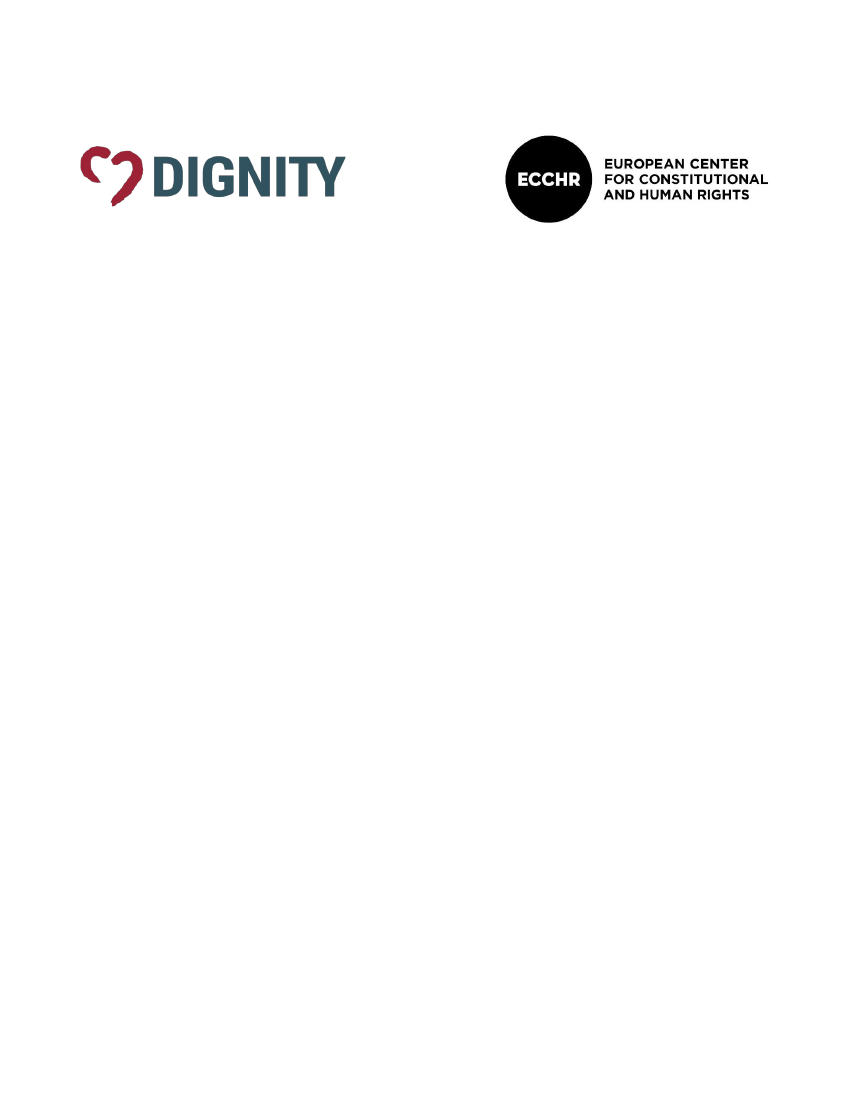
Copenhagen, 26 November 2024
ECCHR and DIGNITY’s foretræde
Folketingets Retsudvalg
effective implementation in practice of the new legislation regarding criminalization of
torture and other international crimes, i.e., law proposal L58
European Center for Constitutional and Human Rights (ECCHR) and DIGNITY – Danish Institute
against Torture highly appreciate the opportunity to submit and present our recommendations
regarding the effective implementation of the new legislation regarding the criminalization of
torture and other international crimes, i.e., law proposal L58, at the foretræde 28 November 2024.
ECCHR,
based in Berlin, is an independent, non-profit legal and educational organization
dedicated to enforcing civil and human rights worldwide. ECCHR has extensive experience in
building cases and filing criminal complaints, representing, and supporting victims and survivors
of serious international crimes. Their expertise is derived from interventions during investigations
as well as in court and collaborations with prosecutors, the police, war crimes units, the EU
Genocide Network as well as with NGOs and lawyers in international crimes cases across Europe.
ECCHR provided input on the recently concluded reform of Germany’s international crimes law
and on the draft Danish legislation regarding international crimes.
DIGNITY
is an international human rights and development organization. DIGNITY works with
a mandate to prevent torture and violence, rehabilitate traumatized victims, and support local
partner organisations in documenting serious human rights violations, with the goal of holding
perpetrators accountable. DIGNITY and its supported partners, that operate in contexts such as
Belarus, Ukraine and Palestine, have a keen interest in ensuring accountability for survivors of
torture and other victims of international crimes.
With the new legislation entering into force, as expected on 1 January 2025, Denmark will face
the unique opportunity to send a clear signal that it stands on the side of the victims of the world’s
most heinous crimes. Denmark’s investigations and its contribution to foreign investigations, e.g.
through the collection and sharing of evidence, will greatly contribute to the fight against impunity
for international crimes.
1